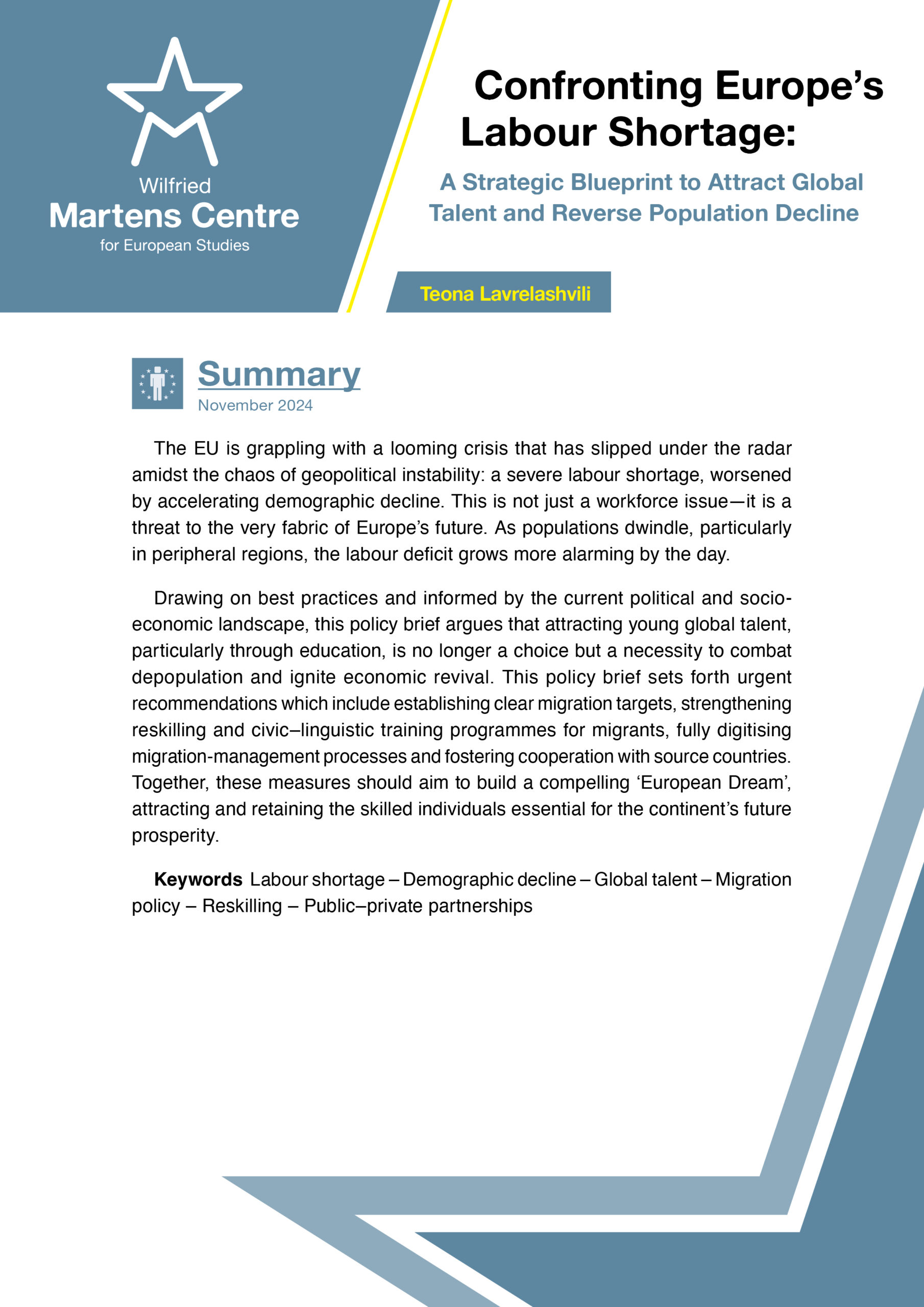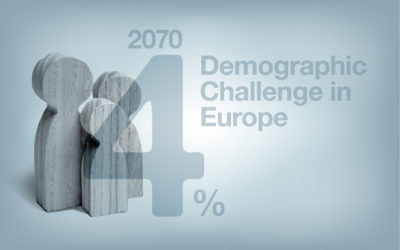Navigating the New Age: A Toolbox for the Demographics of Tomorrow
31 January 2024

Europe is on the brink of a demographic revolution. The age pyramid is changing shape, with a growing proportion of our population over the age of 65, and a significant number over 80. Children born today may well live to be centenarians. This shift, coupled with an overall decline of both population and workforce size, demands a profound rethinking of our institutional, political, economic, and cultural frameworks, which are currently designed for shorter lifespans.
From Ageing to Longevity: A Paradigm Shift
Historically, a rising proportion of older people and the ageing society led to the development of a silver economy, focused on the economic opportunities arising from the ageing population’s specific needs. However, this perspective, anchored in the traditional three-stage model of life (education, work, retirement), limits our view, reducing seniors to their purchasing power and narrowly focusing on end-of-life issues like pensions, life care, and healthcare.
The longevity economy emerges as a transformative concept. It acknowledges not just ageing, but a significant shift in life expectancy, compelling us to exploit the flexibility and capabilities of age. This new economy isn’t just about living longer: it’s about ensuring that these extended years are healthier, more productive, and more fulfilling. It transcends a focus on older age groups and capitalises on the longevity dividend across all ages, recognising the valuable social and economic contributions of older individuals beyond their health needs.
Longevity Society: A Broader Challenge
The longevity society is about restructuring social and working lives to capitalise on the extra time we have, starting from its very beginning, as ageing begins the moment we are born. This new longevity society requires tailored policies for all ages, that have a positive impact on how we grow old and that foster an active and healthy lifestyle at all ages.
We must empower this new older generation and give them a stronger sense of purpose, allowing us to capitalise on their knowledge and experience. This narrative breaks from the negative discourse typically associated with ageing, instead being one of novelty, refreshment, purpose, and value.
This narrative is about embracing a multi-stage life cycle that manages transitions and creates opportunities across generations, promoting intergenerational equity and a positive approach to increased life expectancy.
Europe’s Role in this Transformation
Understanding and adapting to this new reality is not without its challenges. We have started doing so with a number of initiatives, such as the Green Paper on Ageing and the Atlas of Demography. Europe has a critical role in supporting Member States through these demographic shifts, by fostering healthy longevity and equipping Europeans with the tools for longevity literacy. This is why the European Commission recently adopted the communication on Demographic change in Europe: a toolbox for action, which lays out all the available instruments at the disposal of all layers of governance; EU, national and regional. These are designed to work towards a society where everyone, regardless of age, can thrive and enjoy the benefits of demographic change.
As we navigate this transition, we must embrace the longevity society and economy. This shift requires not just understanding, but also action. To make this vision a reality, the European Union must embark on several key initiatives. We should encourage flexible retirement schemes and workplace adaptations that recognise the value of older workers, allowing them to contribute their skills and experience for longer. Increased investment in lifelong learning and re-skilling programmes will ensure that our ageing population remains dynamic and relevant to our economy. In healthcare, a shift towards preventive measures and personalised medicine will not only extend life, but also improve its quality. Additionally, urban planning must evolve to create senior-friendly cities that are accessible and inclusive for all, promoting intergenerational interaction and community cohesion. These actions, combined with policies that address disparities in health literacy and access to quality and affordable care, will pave the way for a more inclusive, productive, and vibrant longevity society.
We must rethink our policies, institutions, and social norms to be fit for this new demographic reality. By doing so, Europe can lead the way in this global shift, creating a society where extended lifespans are a source of strength, vitality, and prosperity.
ENJOYING THIS CONTENT?

















